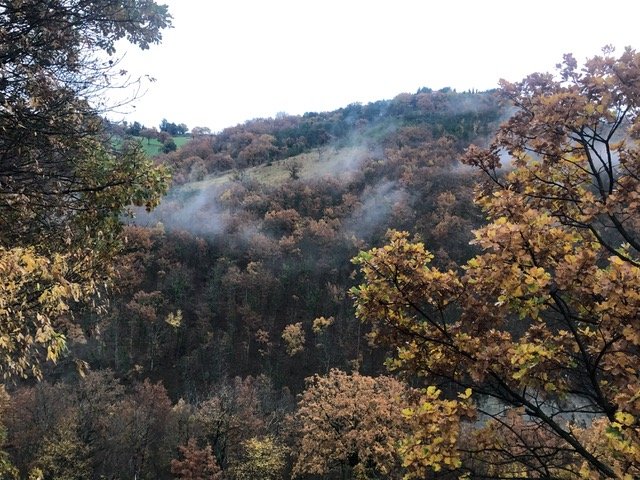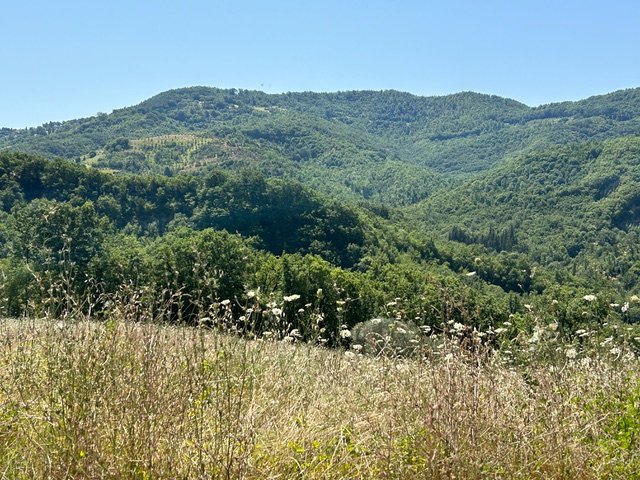Only in the last moment in history has the delusion arisen that people can flourish apart from the rest of the living world. E.O Wilson
We like to blame Rene Descartes for separating man from Nature and for our subsequent and ever increasing destruction of our environment. But according to Edward Osborne Wilson (1929- 2021), the world’s leading entomologist (and one of our great biologists), we have been degrading our immediate surroundings for millennia, though our numbers were initially too small to make an impact. Beginning around ten thousand years ago “natural habitats were no longer wild places in which to hunt and gather food… but…land to be cleared for agriculture. This particular conception, that wildland is something to replace, has been a mental fixation of most the world’s population to the day.” (Wilson)
Recently, I have been rereading Wilson, a man who tied together many of the dangling threads of our evolution. As I read passages I underlined when I was in school, I realized that his words are as informed and urgent now as when I first encountered him. Wilson was—and remains—the world expert on eusocial insects as well as an ecologist and controversial philosopher of our times. I became enthralled with his work when I was studying ecology. He wrote eloquently and insightfully on the incredible cooperation and sophistication of ant colonies; the superorganisms which run the terrestrial world. His admiration of leaf cutter ants was infectious, as he described them building air conditioned cities deep underground and practicing agriculture, which feeds their entire population. And although I could write ecstatically on the amazing ants, from whom humans could learn a thing or two, my actual reason for bringing up Wilson’s work is to point out our alienation from who we really are—our separation from the life which supports us—a separation which now threatens our very existence as a species.
We have lost our way. With our population well over carrying capacity, the devastation we are causing is already irreversible in a human time frame. Wilson believed that we are working with paleolithic emotions, disconnected from our roots, from our current homeland but still tethered to our 40,000+ year old DNA. “In modern industrialized countries, networks grew into complexity that has proved bewildering to the Paleolithic mind we inherited.” (Wilson again) The genes we brought with us out of Africa—with those incorporated from the Neandertal and Denisovan—meant our ancestors, our family, our roots are in the forests and the savanna. This is our turf… the natural world… the wild… home. Our ancestral genes are displaced working and living in the cement canyons of our cities, perpetually engaged with our tiny personal computers, letting them guide everything we do rather than using experience and our innate wisdom. When we are outdoors, physically engaged or just sitting under a tree, under an enormous sky, we feel whole. Indeed, we are (constantly) told to remedy our complaints by ‘getting out into nature a few hours a week’. But then we return to running in circles, working to grow the economy in order to buy more stuff, hunting and foraging on Amazon. Of course we are not grounded. The earth beneath our feet is imprisoned in cement while we live isolated, in small cubicles, stacked one on top of the other into the sky.
Eating playing loving moving digging sharing running walking creating growing sleeping – and just being within the natural world – is what our genetics want to do.
I can see the genes of my ancestors in toddlers; how little kids delight in the world before being restricted, before being told what to fear instead of being encouraged to be curious. Learning to walk, those first few days of struggling to stay upright; gleefully careening ahead, arms outstretched, simply delighted at their independence, their self-sufficiency, their bodies free in space. I think of children splashing wildly in the bath or making hand-prints in the mud or running in the rain before there are rules to stay clean. What child wants to put on shoes or clothing when they are little. They resist all our insistence to be constrained. Watch a child playing outdoors, especially when they see animals. They run ahead fearlessly, wanting to touch, full of curiosity and ecstatic abandon.

We have lost a sense of true belonging – to place, to community. We are displaced, without fully understanding the source of our need. We surround ourselves with houseplants. We garden, growing flowers and food. We hike and trek and jog in the park. We feel awe when sitting with the dawn, while watching the sunset, a soaring hawk, listening to the sound of the rain. We love a campfire and hiking and swimming nude in a lake. We are filled with wonder when on a walk or a drive a graceful deer leaps across our path. If we can afford it, we vacation by the water, in the mountains, the more remote the better. We are still those people living among the trees on the edge of the savanna 40,000 years ago. Somewhere deep within ourselves we are those toddlers who delight in being alive in the world before we learned fear and to follow orders. Our culture may be constantly changing but not our genes. But we have choices. We can relinquish the role of ecosystem trasher and perpetual consumer, we can leave the phone inside and just sit in the sunlight and breathe deeply any time we wish. Anytime… we… wish. If we can do that, we can rejoin and rebuild the natural world.
There is always a way out unless we are enslaved.
I think our acquisition of all the stuff we own (or owe money on) is about being perpetually, and deliberately, bombarded with economic propaganda. (Think: building-high ads twenty-four-hours-a-day in Times Square and just about any large city.) The advertising is clever, urgent; it appeals to a real and very old need to store our nuts for the winter. But we can’t eat our cell phone when drought takes our food. And no government, no environmental group can protect us from the next pandemic or flood or an economic collapse. All of us are guilty of perpetuating an unsustainable, dying system. All of us are guilty of the ongoing degradation and destruction of the natural world. The issue now is whether we choose to stop.
We have more freedom than we imagine.
In case of a change in cabin pressure, oxygen masks will drop down from above your head. Please make sure that you put on your own oxygen mask first, secure it and breathe normally before helping others with theirs… Airplane instructions before takeoff
If our species is to survive at all we cannot wait, we cannot hope that technology will save us. Hope is not about taking action. It is the opposite. Hope allows for a type of paralysis. Having hope means trusting/believing in something outside ourselves. It is about not taking responsibility. We must, each one of us, save ourselves. Time to put on our own oxygen mask. Time to say we have enough. Enough. And perhaps what we really need is less. Most all of us can survive on much less. Living smaller is where it begins and it leads us closer to the world of our origins. Having less means working less. It is a beginning, a way to have more time to remember what really matters, who we really are.
If our fellow animals and plants, rivers, mountains and woods had a say in the matter, they would be better off without us. But even after the unimaginable damage we have done, after millennia, perhaps sooner, the ecosystems will return. The ants, the most evolved of all species, will survive and slowly many diverse life forms will emerge. But if we are to continue at all, we have only one choice—to give up the conqueror role; to return to living simply as a small part of an organic whole.
“Humanity is a biological species, living in a biological environment, because like all species, we are exquisitely adapted in everything: from our behavior, to our genetics, to our physiology, to that particular environment in which we live. The earth is our home. Unless we preserve the rest of life, as a sacred duty, we will be endangering ourselves by destroying the home in which we evolved, and on which we completely depend.” E.O. Wilson

January 2025
Appendix: There are an overwhelming number of choices for starting over more simply. But before you upend your entire life, I recommend you first think about what you eat and drink. Every time we buy food and water we are using our buying power to support or destroy our natural spaces, an economic system, and our health. Try committing to eating only local and unaltered seasonal food. It’s not so easy, but it will be far less expensive and far healthier. You will be voting against container ships, added fungicides and unregulated chemicals and all the environmental impacts and slave labor which come along with food brought in from elsewhere. Next, ditch all bottled water. Use the tap water which is far less expensive but is tested and treated no differently than bottled water. (Look it up! https://www.nrdc.org/stories/bottled-water-vs-tap-water) If you are still concerned, you can buy a ceramic filtration system with a charcoal filter. The final and hardest challenge—but it will qualify you as an immediate health advocate—is to ditch all the plastic packaging on your food. Bring you own paper bags and glass containers. Support your farmers’ market or the local small coop which sells in bulk out of barrels. Just the act of connecting with the local food is a step in connecting with the land.





